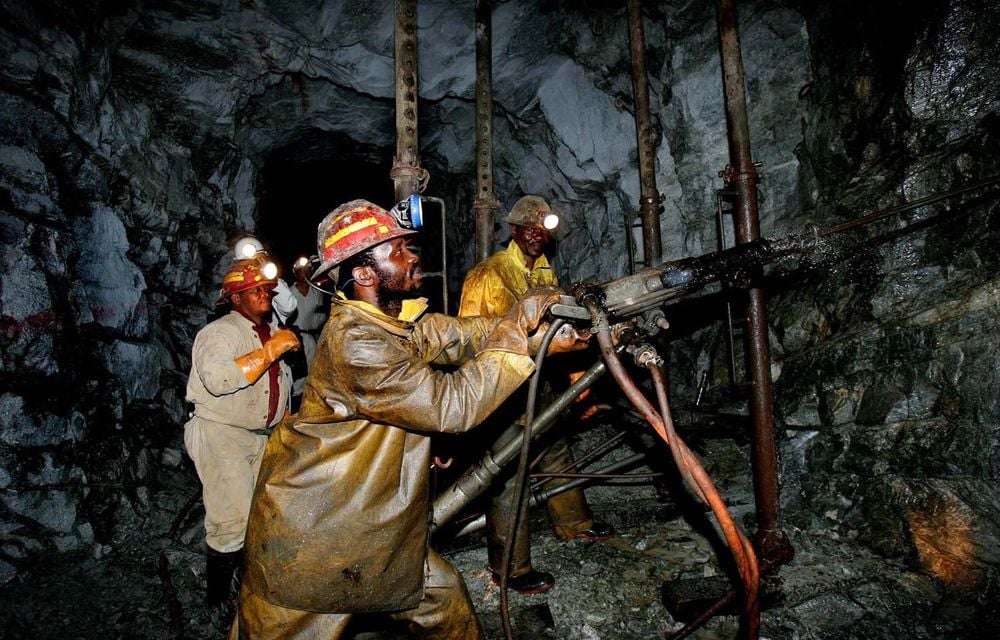Dr. Steven Blessing Ackah, Executive Director of the Ghana Gold Expo, has called on the government and industry stakeholders to urgently reform the country’s gold mining and trading systems, placing a particular emphasis on instituting international certification standards and responsible sourcing frameworks to enhance value addition and sustainability.
Dr. Ackah lamented that Ghana has for decades focused heavily on the extraction of gold while failing to establish a structured, globally competitive trade ecosystem. He emphasized that without internationally recognized certification protocols, Ghana risks continuing to lose out on the real value of its mineral wealth.
“Since the days of Kwame Nkrumah, Ghana has focused on mining gold, not trading it.
“We’ve missed the opportunity to build a competitive gold trade ecosystem underpinned by certification and international best practices.”
Dr. Steven Blessing Ackah, Executive Director of the Ghana Gold Expo
Referencing key provisions in Ghana’s Minerals and Mining Act, 2006 (Act 703), particularly Policies 1 through 89, Dr. Ackah acknowledged that while the legal architecture provides a foundation for managing artisanal and small-scale mining (ASM), implementation continues to fall short when it comes to integrating traceability, quality control, and export certification.
According to him, institutions such as the Minerals Commission, the Environmental Protection Agency (EPA), and the Ghana Gold Board (formerly the Precious Minerals Marketing Company or PMMC) have predominantly focused on licensing and environmental compliance.
However, these efforts do not translate into the high-level standards required for global competitiveness.

“Licensing is just the start. Certification is what gives gold its legitimacy on international markets.
“Without certified refineries and transparent sourcing protocols, Ghana’s gold cannot compete in high-value markets.”
Dr. Steven Blessing Ackah, Executive Director of the Ghana Gold Expo
Ghana currently hosts three gold refineries, yet Dr. Ackah revealed that only one refinery has come close to meeting the international standards required for London Bullion Market Association (LBMA) certification. Worryingly, that refinery has been dormant since 2018 due to operational and regulatory bottlenecks.
“We should not be proud of exporting doré bars without value addition.
“When we fail to refine and certify gold locally, we forfeit huge margins to foreign refiners and buyers, while increasing the risk of smuggling and loss of forex inflows.”
Dr. Steven Blessing Ackah, Executive Director of the Ghana Gold Expo
Dr. Ackah proposed that the government launch a national gold certification and traceability initiative, similar to the Kimberley Process for diamonds, to align Ghana’s trade practices with responsible sourcing requirements and to attract international bullion investors.
Support for Gold Board and Gold Villages

Dr. Ackah also expressed support for the Ghana Gold Board’s recent reforms, particularly its introduction of traceability systems and aggregation networks for ASM gold.
However, he cautioned that without full end-to-end certification, these gains would be marginal.
He reiterated calls for the establishment of a “Gold Village” as envisioned by President John Dramani Mahama—a centralized hub for gold refining, jewellery manufacturing, export certification, and skills development.
“The Gold Village must be more than a slogan—it should be the foundation of a regional gold economy.
“It can be a Pan-African hub for ethical gold trade, leveraging Ghana’s long-standing reputation as a gold-rich nation.”
Dr. Steven Blessing Ackah, Executive Director of the Ghana Gold Expo

To support this transformation, Dr. Ackah urged the Ministry of Lands and Natural Resources and the Ministry of Trade and Industry to: “Establish a national gold certification policy and Fast-track operationalization and LBMA compliance for at least one Ghana-based refinery.”
He also encouraged partnerships between the private sector, academia, and civil society to promote awareness and capacity-building across the gold value chain.
Sustainable mining is not just about protecting the environment. It’s also about unlocking full economic value for the country and ensuring our gold trade earns the respect it deserves on the global stage
READ ALSO: Gov’t Tightens Grip on Rates, Sacrifices GH¢1bn in Bids as T-Bill Auction Misses Mark



















